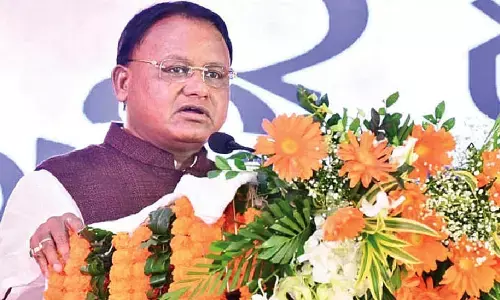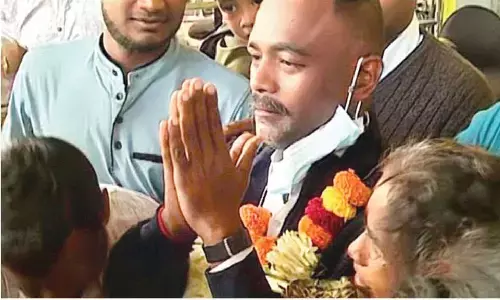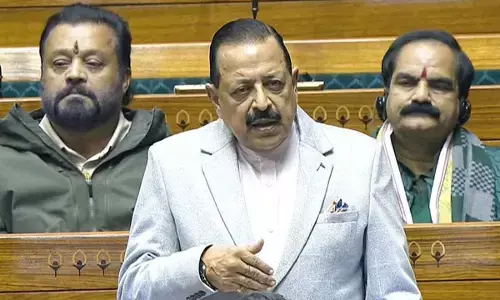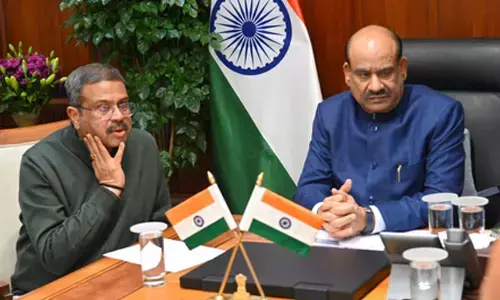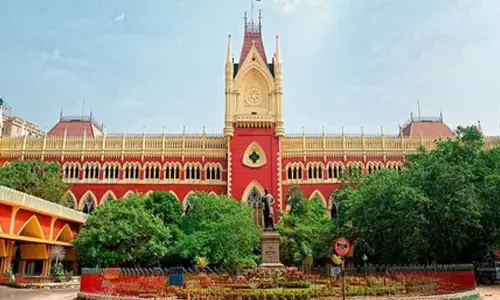Supreme Court to examine if petitions challenging sedition law should be referred to larger bench
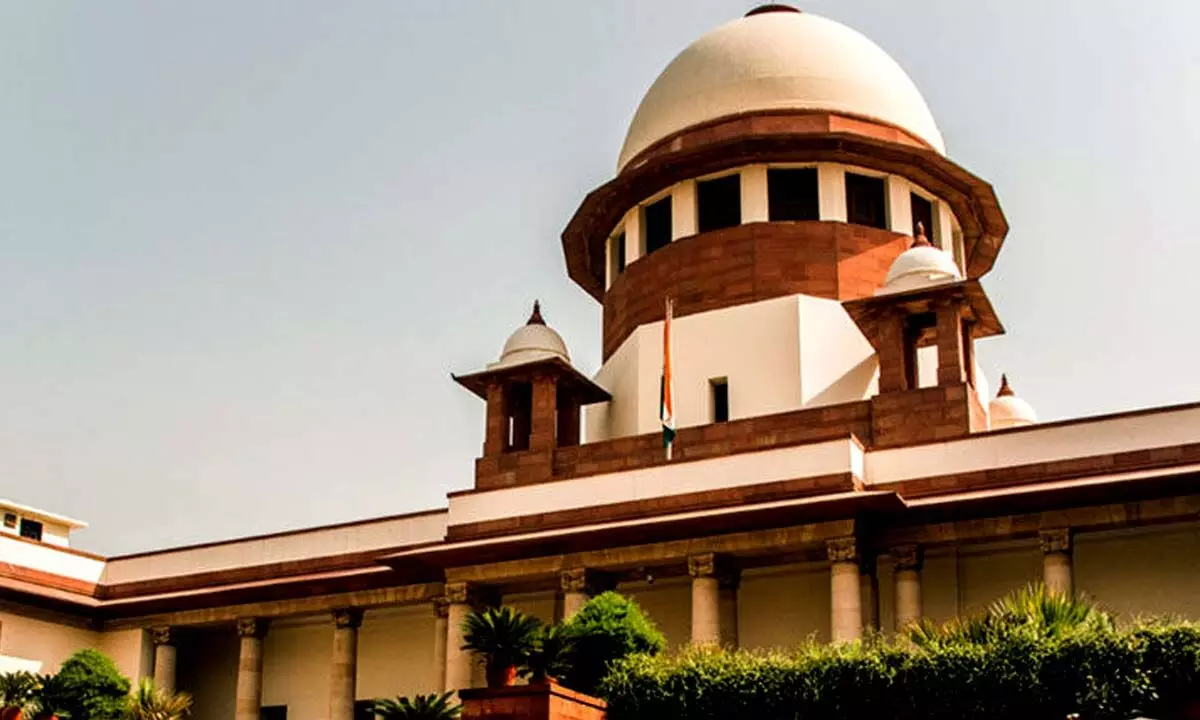
Supreme Court of India
The Supreme Court on Thursday gave last opportunity to Centre to file its response on petitions challenging the sedition law, and also agreed to hear arguments on whether the case should be referred to a larger bench.
New Delhi: The Supreme Court on Thursday gave last opportunity to Centre to file its response on petitions challenging the sedition law, and also agreed to hear arguments on whether the case should be referred to a larger bench.
At the outset, Solicitor General Tushar Mehta, representing the Centre, submitted before a bench, headed by Chief Justice N.V. Ramana, that a draft is ready in the case and it is awaiting approval from competent authority, and sought an extension to file the counter affidavit.
As the Chief Justice told Mehta that 9 or 10 months ago, notice was issued on the petitions, and asked him to argue without the counter-affidavit, Mehta mentioned that fresh matters have been filed in the case and requested the court to grant more time -- given the nature of the matter and its repercussions.
At this the bench, also comprising Justices Surya Kant and Hima Kohli, said: "It is a question of law and we are sure you can assist us in the matter. What is the issue?"
However, Attorney General K.K. Venugopal said he is ready to argue the matter.
He said the sedition law is valid, in view of the Kedar Nath Singh case judgement (1962), which balanced freedom of speech and security of state.
Urging the top court to lay down guidelines to prevent misuse of the law, he said: "Misuse (of the sedition law) is controlled... the question of reference (of Kedar Nath Singh case to a larger bench) does not arise."
The Supreme Court in the Kedar Nath Singh case clarified that only those acts, which involved incitement to violence or violence, constituted a seditious act under Section 124 A of the IPC.
The AG, who is assisting the court in personal capacity, said: "You've seen what's happening in the country...someone was detained as they wanted to recite Hanuman Chalisa, they've been released on bail...the single most important thing is what is permissible and what is not permissible... this is very important."
The AG was referring to the case of the Rana couple in Mumbai, who were charged with sedition for wanting to recite the Hanuman Chalisa as he emphasised that the law should not be repealed, rather more clearly defined.
Senior advocate Kapil Sibal, representing one of the petitioners, submitted that the three-judge bench can consider the matter, instead of referring to a larger bench.
"Colonial masters do not control us anymore. We own our own destiny... no longer subjects of the crown," he said, adding that the three-judge bench can go into the issue ignoring Kedar Nath.
As Sibal added that his client's petition did not seek reconsideration of Kedar Nath, the bench, however, pointed out that other petitioners sought the reconsideration of the verdict.
Sibal elaborated that Kedar Nath judgment had confused between the state government and the Centre, and quoted what Mahatma Gandhi said about sedition offence - "It is my right to create disaffection against the government". The AG countered that they have to show what is wrong with the Kedar Nath judgment, and added that the issue is not with the law, but with its misuse and abuse.
Venugopal argued that individual cases can be examined, where the law was implemented in a bad way, and opposed referring the petitions against sedition law to a larger bench. "Law which is fair and valid but is implemented in an unfair and abusive manner will not make the law unconstitutional..." he said. Sibal said many changes had taken place since the Kedar Nath Singh judgment.
After hearing arguments, the bench sought written submissions from the Centre and petitioners and scheduled the matter for hearing on question of reference to a larger bench on Tuesday.
Giving the last opportunity to Mehta to file a written response on the petitions by Monday, the bench said it will not give any further extension.
The top court was hearing petitions filed by Major General S.G. Vombatkere (retd) and the Editors Guild of India and others, challenging the constitutional validity of Section 124A which carries a maximum penalty of life imprisonment.
Vombatkere's plea argued that a statute criminalising expression based on unconstitutionally vague definitions of 'disaffection towards government', etc., is an unreasonable restriction on the fundamental right to free expression guaranteed under Article 19(1)(a) and causes constitutionally impermissible 'chilling effect' on the speech.








